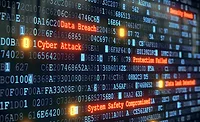Cyber Security Not Ready for Professionalization Standards: Report
Now is not the time to introduce professionalism standards into the rapidly changing and diverse field of cyber security, especially given the current staffing shortages in the field, according to a new report by the National Research Council of the National Academy of Sciences.
The report, Professionalizing the Nation’s Cybersecurity Workforce? Criteria for Decision-Making, concluded that while the field of cyber security requires specialized knowledge and advanced training, it’s still too young and diverse to introduce professionalization standards.
According to a report from NextGov, the report notes that the diversity of jobs in the cyber security field requires a careful analysis of whether and how professionalization should be implemented, taking into account the responsibilities and context of a particular job. In addition, the certifications and other requirements that come with professionalization status may “provide useful tools for vetting job candidates, but over-reliance on these standards may screen out some of the most skilled experts, particularly the ‘self-taught hackers,’” the article states.
The report notes that more work needs to be done to determine what the ethics of cyber work should look like before a professional code of ethics can be established.
One cyber security sub-profession that could be considered mature enough for professionalization is digital forensics, which is relatively stable in the level of skills required, the report states.
Looking for a reprint of this article?
From high-res PDFs to custom plaques, order your copy today!







